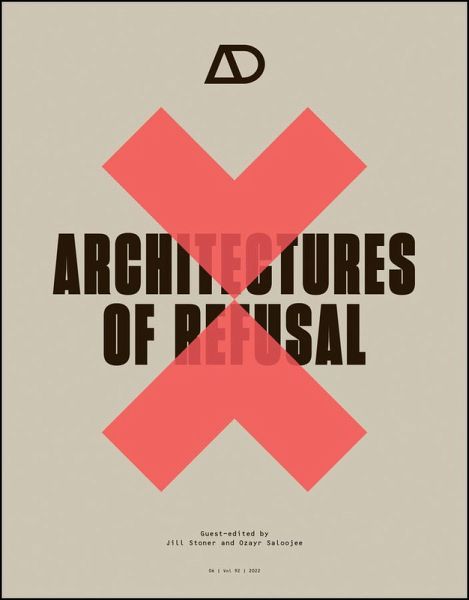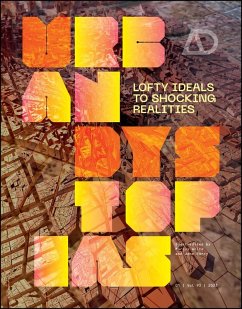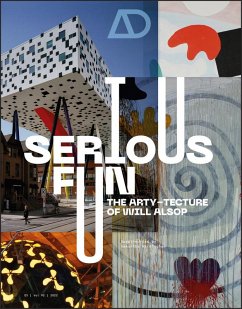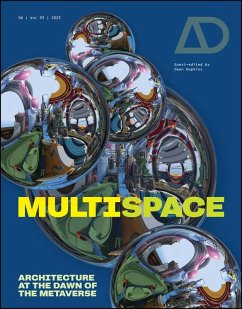
Architectures of Refusal (eBook, PDF)
Versandkostenfrei!
Sofort per Download lieferbar
30,99 €
inkl. MwSt.
Weitere Ausgaben:

PAYBACK Punkte
0 °P sammeln!
Guest-edited by Jill Stoner and Ozayr SaloojeeOver the past decade, and in a more concentrated form over the past two years, there has been increasing recognition of architecture's systemic complicity in constructing and upholding hierarchies of race and class, and privileging colonial paradigms that perpetuate spatial and economic inequity. This AD issue reveals how designers, practitioners, scholars and architects are participating in dismantling the major canons of Western architecture. The work is both literal and figural: taking buildings apart and reconstituting them, and challenging myt...
Guest-edited by Jill Stoner and Ozayr Saloojee
Over the past decade, and in a more concentrated form over the past two years, there has been increasing recognition of architecture's systemic complicity in constructing and upholding hierarchies of race and class, and privileging colonial paradigms that perpetuate spatial and economic inequity. This AD issue reveals how designers, practitioners, scholars and architects are participating in dismantling the major canons of Western architecture. The work is both literal and figural: taking buildings apart and reconstituting them, and challenging mythologies that include drawing-as-analogue, building-as object, architect-as-hero and nature-as-other.
Architecture has both potential and responsibility for political agency in the public realm. The contributions to this issue foreground emancipatory spatial ideas and practices from around the world, demonstrating that refusal is no longer just absence and denial, but a constructive mode of resistance and action that needs to be approached through subversive urban works, design pedagogy and alliances across multiple disciplines.
Contributors: Piper Bernbaum, Carwil Bjork-James, Thiresh Govender, Lucia Jalón Oyarzun, Jennifer Newsom and Tom Carruthers, Cong Chi Nguyen, Quilian Riano, Hannah Le Roux, Alberto de Salvatierra, Cathy Smith, Chat Travieso, and Ilze Wolff.
Over the past decade, and in a more concentrated form over the past two years, there has been increasing recognition of architecture's systemic complicity in constructing and upholding hierarchies of race and class, and privileging colonial paradigms that perpetuate spatial and economic inequity. This AD issue reveals how designers, practitioners, scholars and architects are participating in dismantling the major canons of Western architecture. The work is both literal and figural: taking buildings apart and reconstituting them, and challenging mythologies that include drawing-as-analogue, building-as object, architect-as-hero and nature-as-other.
Architecture has both potential and responsibility for political agency in the public realm. The contributions to this issue foreground emancipatory spatial ideas and practices from around the world, demonstrating that refusal is no longer just absence and denial, but a constructive mode of resistance and action that needs to be approached through subversive urban works, design pedagogy and alliances across multiple disciplines.
Contributors: Piper Bernbaum, Carwil Bjork-James, Thiresh Govender, Lucia Jalón Oyarzun, Jennifer Newsom and Tom Carruthers, Cong Chi Nguyen, Quilian Riano, Hannah Le Roux, Alberto de Salvatierra, Cathy Smith, Chat Travieso, and Ilze Wolff.
Dieser Download kann aus rechtlichen Gründen nur mit Rechnungsadresse in D ausgeliefert werden.













